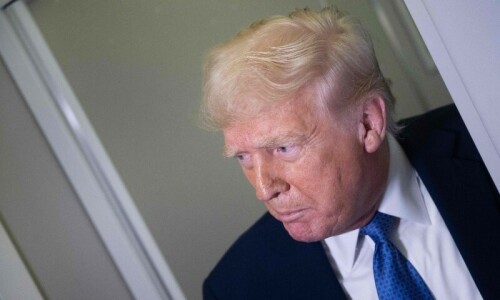KARACHI: Foreign exchange reserves of the State Bank fell drastically by $397 million during the week that ended on July 19, making it difficult for the government to keep the reserves around $9 billion before another loan agreement with the IMF.
According to the State Bank, the decline was due to external debt repayments which brought the reserves down to $9.027.2bn. The country is struggling amid huge debt servicing on both domestic and external fronts.
The need to raise $24bn for external debt servicing in FY25 has created problems for economic managers as they have already used most of the sources for inflows.
Now Finance Minister Mohammad Aurangzeb is negotiating with Chinese investors for rescheduling of loans. The prime minister has already delivered a letter to the Chinese government for its consideration.
The finance minister is making efforts for rescheduling of a $15bn energy loan. Sources in the financial sector said Chinese companies were not happy with media reports holding them responsible for problems related to IPPs.
The Chinese have also shown concern over non-payment so far of profits amounting to $1.8bn.
Sources said Mr Aurangzeb would have to raise issues related to China’s energy circular debt, which currently stands at Rs500bn.
China has set up 21 energy projects in Pakistan at a total cost of $21b.
Pakistan is hoping for an extension of the debt repayment period from 10 to 15 years. This could reduce the outflow of foreign currency estimated at $700m.
Financial sector experts and some analysts believe that the rescheduling of Chinese energy loan is crucial for the country. They believe that the IMF is willing to get the Chinese loan rescheduled before finalising the $7bn package for Pakistan.
Without rescheduling, Pakistan would be unable to arrange $24bn for debt servicing in FY25.
The country is still unable to tap into the international market for launching bonds to raise dollars while hopes for bilateral loans are bleak.
Saudi Arabia and the UAE have already deposited billions of dollars with the State Bank and China rescheduled some payments in FY24.
Currency experts said the decline of $397m in the central bank’s reserves would weaken the exchange rate. Further outflows could affect the stable exchange rate, they feared.
On July 19, the total liquid foreign reserves stood at $14.335bn, including $5.308bn with commercial banks.
Published in Dawn, July 26th, 2024















































